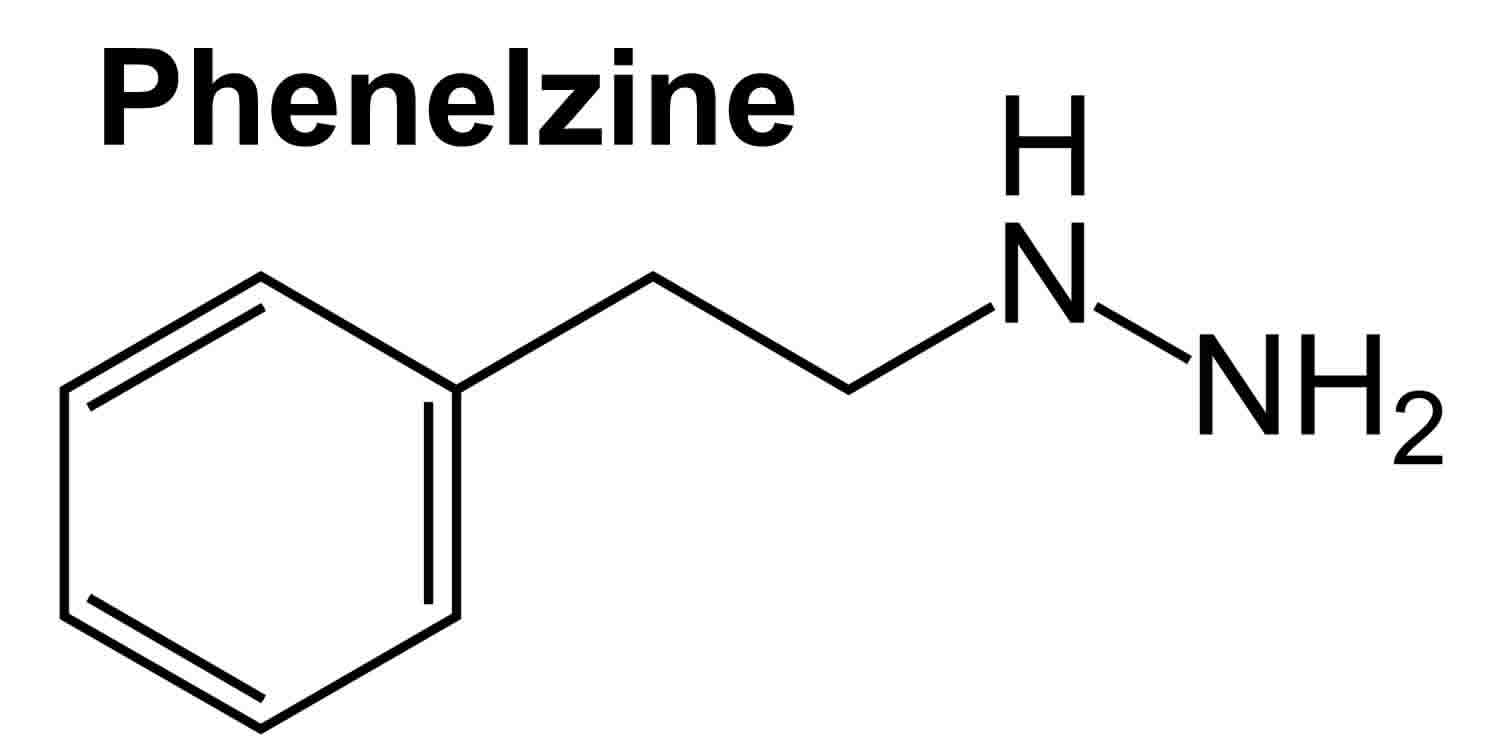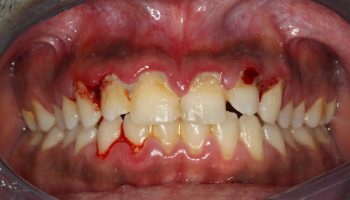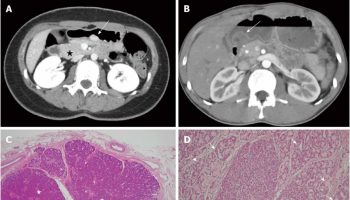What is phenelzine
Phenelzine is used to treat depression in people who have not been helped by other medications. Phenelzine belongs to the group of medicines called monoamine oxidase inhibitors (MAOIs). Phenelzine works by blocking the action of a chemical substance known as monoamine oxidase (MAO) in the nervous system by increasing the amounts of certain natural substances that are needed to maintain mental balance.
Although phenelzine is very effective for certain patients, it may also cause some unwanted reactions if taken the wrong way. It is very important to avoid certain foods, beverages, and medicines while you are using phenelzine. Your doctor may provide a list as a reminder of which products you should avoid.
Phenelzine is available only with your doctor’s prescription.
Phenelzine comes as a tablet to take by mouth. It is usually taken three times a day,. Follow the directions on your prescription label carefully, and ask your doctor or pharmacist to explain any part you do not understand. Take phenelzine exactly as directed. Do not take more or less of it or take it more often than prescribed by your doctor.
Your doctor will probably start you on a low dose of phenelzine and gradually increase your dose. After your symptoms have improved, your doctor will probably gradually decrease your dose. Follow these directions carefully.
Phenelzine controls the symptoms of depression but does not cure the condition. It may take 4 weeks or longer for you to feel the full benefit of phenelzine. Continue to take phenelzine even if you feel well. Do not stop taking phenelzine without talking to your doctor. Your doctor probably will want to decrease your dose gradually. If you suddenly stop taking phenelzine, you may experience withdrawal symptoms such as nightmares, agitation, loss of contact with reality, nausea, vomiting, and weakness.
A small number of children, teenagers, and young adults (up to 24 years of age) who took antidepressants (‘mood elevators’) such as phenelzine during clinical studies became suicidal (thinking about harming or killing oneself or planning or trying to do so). Children, teenagers, and young adults who take antidepressants to treat depression or other mental illnesses may be more likely to become suicidal than children, teenagers, and young adults who do not take antidepressants to treat these conditions. However, experts are not sure about how great this risk is and how much it should be considered in deciding whether a child or teenager should take an antidepressant. Children younger than 18 years of age should not normally take phenelzine, but in some cases, a doctor may decide that phenelzine is the best medication to treat a child’s condition.
You should know that your mental health may change in unexpected ways when you take phenelzine or other antidepressants even if you are an adult over age 24. You may become suicidal, especially at the beginning of your treatment and any time that your dose is increased or decreased. You, your family, or your caregiver should call your doctor right away if you experience any of the following symptoms: new or worsening depression; thinking about harming or killing yourself, or planning or trying to do so; extreme worry; agitation; panic attacks; difficulty falling asleep or staying asleep; aggressive behavior; irritability; acting without thinking; severe restlessness; and frenzied abnormal excitement. Be sure that your family or caregiver knows which symptoms may be serious so they can call the doctor when you are unable to seek treatment on your own.
Your healthcare provider will want to see you often while you are taking phenelzine, especially at the beginning of your treatment. Be sure to keep all appointments for office visits with your doctor.
The doctor or pharmacist will give you the manufacturer’s patient information sheet (Medication Guide) when you begin treatment with phenelzine. Read the information carefully and ask your doctor or pharmacist if you have any questions. You also can obtain the Medication Guide from the FDA website: https://www.fda.gov/Drugs/DrugSafety/ucm085729.htm
No matter what your age, before you take an antidepressant, you, your parent, or your caregiver should talk to your doctor about the risks and benefits of treating your condition with an antidepressant or with other treatments. You should also talk about the risks and benefits of not treating your condition. You should know that having depression or another mental illness greatly increases the risk that you will become suicidal. This risk is higher if you or anyone in your family has or has ever had bipolar disorder (mood that changes from depressed to abnormally excited) or mania (frenzied, abnormally excited mood) or has thought about or attempted suicide. Talk to your doctor about your condition, symptoms, and personal and family medical history. You and your doctor will decide what type of treatment is right for you.
Before taking phenelzine
- tell your doctor and pharmacist if you are allergic to phenelzine or any other medications.
- tell your doctor if you are taking, have recently taken, or plan to take any of the following prescription and non-prescription medications: certain other antidepressants including amitriptyline (Elavil), amoxapine, clomipramine (Anafranil), desipramine (Norpramin), doxepin (Sinequan), imipramine (Tofranil), maprotiline, mirtazapine (Remeron), nortriptyline (Pamelor), protriptyline (Vivactil), and trimipramine (Surmontil);amphetamines such as amphetamine (in Adderall), benzphetamine (Didrex), dextroamphetamine (Dexedrine, Dextrostat, in Adderall), and methamphetamine (Desoxyn);bupropion (Wellbutrin, Zyban); buspirone (BuSpar); caffeine (No-Doz, Quick-Pep, Vivarin); cyclobenzaprine (Flexeril); dexfenfluramine (Redux) (not available in the U.S.); dextromethorphan (Robitussin, others); duloxetine (Cymbalta); epinephrine (Epipen, Primatene Mist); guanethidine (Ismelin) (not available in the U.S.); levodopa (Larodopa, in Sinemet); medications for allergies, cough and cold symptoms, hay fever; anxiety, sinus problems, or weight loss (diet pills, appetite suppressants); medications for seizures such as carbamazepine (Tegretol); narcotic medications for pain; nasal decongestants, including nose drops and sprays; other MAOIs such as isocarboxazid (Marplan); pargyline (not available in the U.S.), procarbazine (Matulane), tranylcypromine (Parnate), and selegiline (Eldepryl, Emsam, Zelapar); meperidine (Demerol); methyldopa (Aldomet); ‘pep pills’; sedatives; selective serotonin reuptake inhibitors such as citalopram (Celexa), escitalopram (Lexapro), fluoxetine (Prozac), fluvoxamine (Luvox), paroxetine (Paxil), and sertraline (Zoloft);sleeping pills; tranquilizers; venlafaxine (Effexor); and medications containing alcohol (Nyquil, elixirs, others). Your doctor may tell you not to take phenelzine if you are taking or have recently stopped taking one or more of these medications.
- tell your doctor and pharmacist what other prescription and nonprescription medications, vitamins, and herbal products you are taking or plan to take. Be sure to mention any of the following: barbiturates such as pentobarbital (Nembutal), phenobarbital (Luminal), and secobarbital (Seconal); beta blockers such as atenolol (Tenormin), labetalol (Normodyne), metoprolol (Lopressor, Toprol XL), nadolol (Corgard), and propranolol (Inderal); doxepin cream (Zonelon), insulin and oral medications for diabetes; and medication for high blood pressure including diuretics (‘water pills’), and reserpine (Serpalan). Your doctor may need to change the doses of your medications and monitor you carefully for side effects.
- you should know that phenelzine may remain in your body for several weeks after you stop taking the medication. During the first few weeks after your treatment ends, tell your doctor and pharmacist that you have recently stopped taking phenelzine before you start taking any new medications.
tell your doctor if you are taking any nutritional supplements, especially phenylalanine (contained in aspartame sweetened products such as diet sodas and foods, over-the-counter medications, and some prescription medications), rauwolfia, tyrosine, or tryptophan.
- tell your doctor if you have or have ever had pheochromocytoma (a tumor on a small gland near the kidneys) or heart or liver disease. Your doctor may tell you not to take phenelzine.
- tell your doctor if you use street drugs. Also tell your doctor if you have or have ever had high blood pressure; diabetes; seizures; schizophrenia (a mental illness that causes disturbed thinking, loss of interest in life, and strong or unusual emotions); agitation; or hyperactivity or other movement disorders.
- tell your doctor if you are pregnant, plan to become pregnant, or are breast-feeding. If you become pregnant while taking phenelzine, call your doctor.
if you are having surgery, including dental surgery, tell the doctor or dentist that you are taking phenelzine.
- you should know that this medication may make you drowsy. Do not drive a car or operate machinery until you know how this medication affects you.
do not drink alcohol while you are taking phenelzine. Alcohol can make the side effects of phenelzine worse.
- you should know that phenelzine may cause dizziness, lightheadedness, and fainting when you get up too quickly from a lying position. This is more common when you first start taking phenelzine. To avoid this problem, get out of bed slowly, resting your feet on the floor for a few minutes before standing up.
Drug Interactions
Although certain medicines should not be used together at all, in other cases two different medicines may be used together even if an interaction might occur. In these cases, your doctor may want to change the dose, or other precautions may be necessary. When you are taking this medicine, it is especially important that your healthcare professional know if you are taking any of the medicines listed below. The following interactions have been selected on the basis of their potential significance and are not necessarily all-inclusive.
Using this medicine with any of the following medicines is not recommended. Your doctor may decide not to treat you with this medication or change some of the other medicines you take.
- Amitriptyline
- Amoxapine
- Amphetamine
- Apraclonidine
- Atomoxetine
- Benzphetamine
- Brimonidine
- Bupropion
- Buspirone
- Carbamazepine
- Carbidopa
- Carbinoxamine
- Citalopram
- Clomipramine
- Clovoxamine
- Cocaine
- Codeine
- Cyclobenzaprine
- Cyproheptadine
- Desipramine
- Desvenlafaxine
- Deutetrabenazine
- Dexfenfluramine
- Dexmethylphenidate
- Dextroamphetamine
- Dextromethorphan
- Diethylpropion
- Dopamine
- Doxylamine
- Duloxetine
- Entacapone
- Epinephrine
- Escitalopram
- Femoxetine
- Fenfluramine
- Fluoxetine
- Fluvoxamine
- Guanadrel
- Guanethidine
- Hydroxytryptophan
- Imipramine
- Isocarboxazid
- Isometheptene
- Levodopa
- Levomethadyl
- Levomilnacipran
- Linezolid
- Lisdexamfetamine
- Maprotiline
- Mazindol
- Meperidine
- Mephentermine
- Methamphetamine
- Methotrimeprazine
- Methyldopa
- Methylene Blue
- Methylphenidate
- Milnacipran
- Mirtazapine
- Nefazodone
- Nefopam
- Norepinephrine
- Nortriptyline
- Opicapone
- Opipramol
- Paroxetine
- Phendimetrazine
- Phenmetrazine
- Phentermine
- Phenylalanine
- Phenylephrine
- Phenylpropanolamine
- Procarbazine
- Protriptyline
- Pseudoephedrine
- Rasagiline
- Reserpine
- Rizatriptan
- Safinamide
- Selegiline
- Sertraline
- Sibutramine
- Sumatriptan
- Tapentadol
- Tetrabenazine
- Tramadol
- Tranylcypromine
- Trazodone
- Trimipramine
- Tryptophan
- Venlafaxine
- Vilazodone
- Vortioxetine
- Zolmitriptan
Using this medicine with any of the following medicines is usually not recommended, but may be required in some cases. If both medicines are prescribed together, your doctor may change the dose or how often you use one or both of the medicines.
- Alfentanil
- Atropine
- Benzhydrocodone
- Buprenorphine
- Butorphanol
- Difenoxin
- Dihydrocodeine
- Diphenoxylate
- Dolasetron
- Dothiepin
- Doxepin
- Droperidol
- Ephedrine
- Ethchlorvynol
- Fentanyl
- Frovatriptan
- Granisetron
- Guarana
- Hydrocodone
- Hydromorphone
- Iobenguane I 123
- Iobenguane I 131
- Kava
- Levorphanol
- Licorice
- Lithium
- Lofepramine
- Lorcaserin
- Ma Huang
- Mate
- Metaraminol
- Metaxalone
- Methadone
- Metoclopramide
- Midodrine
- Morphine
- Morphine Sulfate Liposome
- Nalbuphine
- Naratriptan
- Oxycodone
- Oxymetazoline
- Oxymorphone
- Palonosetron
- Pentazocine
- Reboxetine
- Remifentanil
- St John’s Wort
- Sufentanil
- Tolcapone
- Tyrosine
- Valbenazine
- Ziprasidone
Using this medicine with any of the following medicines may cause an increased risk of certain side effects, but using both drugs may be the best treatment for you. If both medicines are prescribed together, your doctor may change the dose or how often you use one or both of the medicines.
- Acarbose
- Chlorpropamide
- Ginseng
- Glimepiride
- Glipizide
- Glyburide
- Insulin
- Insulin Aspart, Recombinant
- Insulin Bovine
- Insulin Degludec
- Insulin Detemir
- Insulin Glargine, Recombinant
- Insulin Glulisine
- Insulin Lispro, Recombinant
- Metformin
- Metoprolol
- Nadolol
- Nateglinide
- Repaglinide
- Tolazamide
- Tolbutamide
Phenelzine foods to avoid
You may experience a serious reaction if you eat foods that are high in tyramine during your treatment with phenelzine. Tyramine is found in many foods, including meat, poultry, fish, or cheese that has been smoked, aged, improperly stored, or spoiled; certain fruits, vegetables, and beans; alcoholic beverages; and yeast products that have fermented. Your doctor or dietitian will tell you which foods you must avoid completely, and which foods you may eat in small amounts. You should also avoid foods and drinks that contain caffeine during your treatment with phenelzine. Follow these directions carefully. Ask your doctor or dietitian if you have any questions about what you may eat and drink during your treatment.
While you are taking phenelzine you must not eat foods that are high in tyramine, including:
- aged or smoked meats, fermented meats, dry sausage (including salami, pepperoni, Lebanon bologna), liver, pickled herring;
- any spoiled or improperly stored meats, fish, or dairy products;
- beer and wine (including non-alcoholic beer or wine);
- cheese (other than cottage cheese or cream cheese);
- sauerkraut;
- over-the-counter supplements or cough and cold medicines that contain dextromethorphan or tyramine;
- large amounts of chocolate or caffeine;
- yogurt;
- fava beans;
- meat extracts; or
- yeast extracts (including Brewer’s yeast).
You should become very familiar with the list of foods and medicines you must avoid while you are taking phenelzine. Eating tyramine while you are taking phenelzine can raise your blood pressure to dangerous levels which could cause life-threatening side effects.
Phenelzine may impair your thinking or reactions. Be careful if you drive or do anything that requires you to be alert.
Phenelzine dosage
Adult Dose for Depression
- Initial dose: 15 mg, orally, 3 times a day
- Early phase treatment: Increase to at least 60 mg per day fairly rapidly, as tolerated
- 90 mg per day may be needed for sufficient MAO inhibition
- Clinical response may not be seen until at least 4 weeks at 60 mg per day dosing
- Maintenance dose: After maximal benefit is achieved, reduce dose slowly over several weeks.
- Maintenance dose may be as low as 15 mg once a day or 15 mg every other day
- Duration of therapy: As long as required
Comments:
- Phenelzine should rarely be the first antidepressant used; it is more suitable for patients unresponsive to more commonly used medications.
- Phenelzine is effective in depressed patients characterized as atypical, nonendogenous, or neurotic, who often have mixed anxiety and depression and phobic or hypochondriacal features.
- Evidence of usefulness in severely depressed patients with endogenous features is less conclusive.
What should I do if I forget a dose?
Take the missed dose as soon as you remember it. However, if it is almost time for your next dose, skip the missed dose and continue your regular dosing schedule. Do not take a double dose to make up for a missed one.
Phenelzine side effects
Phenelzine may cause side effects. Tell your doctor if any of the following symptoms are severe or do not go away:
- drowsiness
- weakness
- dizziness
- dry mouth
- constipation
- weight gain
- decreased sexual ability
- uncontrollable shaking of any part of the body
- muscle twitching or jerking
Some side effects can be serious. If you experience any of the following symptoms or those listed in the IMPORTANT WARNING section, call your doctor immediately:
- headache
- slow, fast, or pounding heartbeat
- neck stiffness or soreness
- chest pain
- nausea
- vomiting
- sweating
- wide pupils (black circles in the middle of the eyes)
- eyes more sensitive to light than usual
- swelling of face, throat, arms, hands, feet, ankles, or lower legs
- difficulty breathing or swallowing
- yellowing of the skin or eyes (jaundice)
Phenelzine may cause other side effects. Call your doctor if you experience any unusual problems while you are taking this medication.
In case of overdose
In case of overdose, call the poison control helpline at 1-800-222-1222. Information is also available online at https://www.poisonhelp.org/help
If the victim has collapsed, had a seizure, has trouble breathing, or can’t be awakened, immediately call your local emergency services number.
Symptoms of overdose may include:
- drowsiness
- dizziness
- faintness
- irritability
- hyperactivity
- agitation
- headache
- hallucinations (seeing things or hearing voices that do not exist)
- tightening of the jaw
- stiffly arched back
- seizures
- coma (loss of consciousness for a period of time)
- fast, irregular pulse
- chest pain
- slowed breathing
- fever
- sweating
- cool, clammy skin





